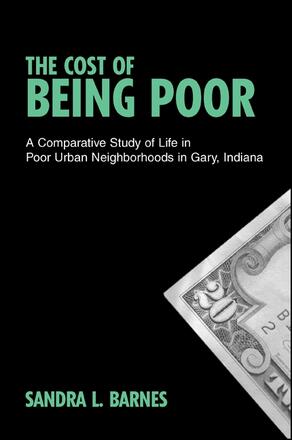
The Cost of Being Poor
A Comparative Study of Life in Poor Urban Neighborhoods in Gary, Indiana
Alternative formats available from:
Looks at the daily lives of poor people to demonstrate that the poor pay more than others, by both monetary and other measures, to meet basic needs.
Description
While the negative effects of urban poverty are well documented, the everyday experiences of urban residents are often absent or secondary in urban studies research. The Cost of Being Poor rectifies this problem by examining both the noneconomic and the often-overlooked economic costs faced by residents of poor urban neighborhoods in Gary, Indiana. Using census, regional, and local data, and in-depth interviews with the residents of Gary, Sandra L. Barnes argues that many people incur costs resulting from the dual dilemma of being poor and residing in a poor urban area. She explores how factors such as race/ethnicity, neighborhood type, and location influence residents' views, coping strategies, and unconventional approaches toward making ends meet. Well written and accessible, this study of Gary's poor urban neighborhoods offers broad findings that apply to other similarly impoverished Rust Belt cities.
Sandra L. Barnes is Assistant Professor of Sociology and African American Studies at Purdue University